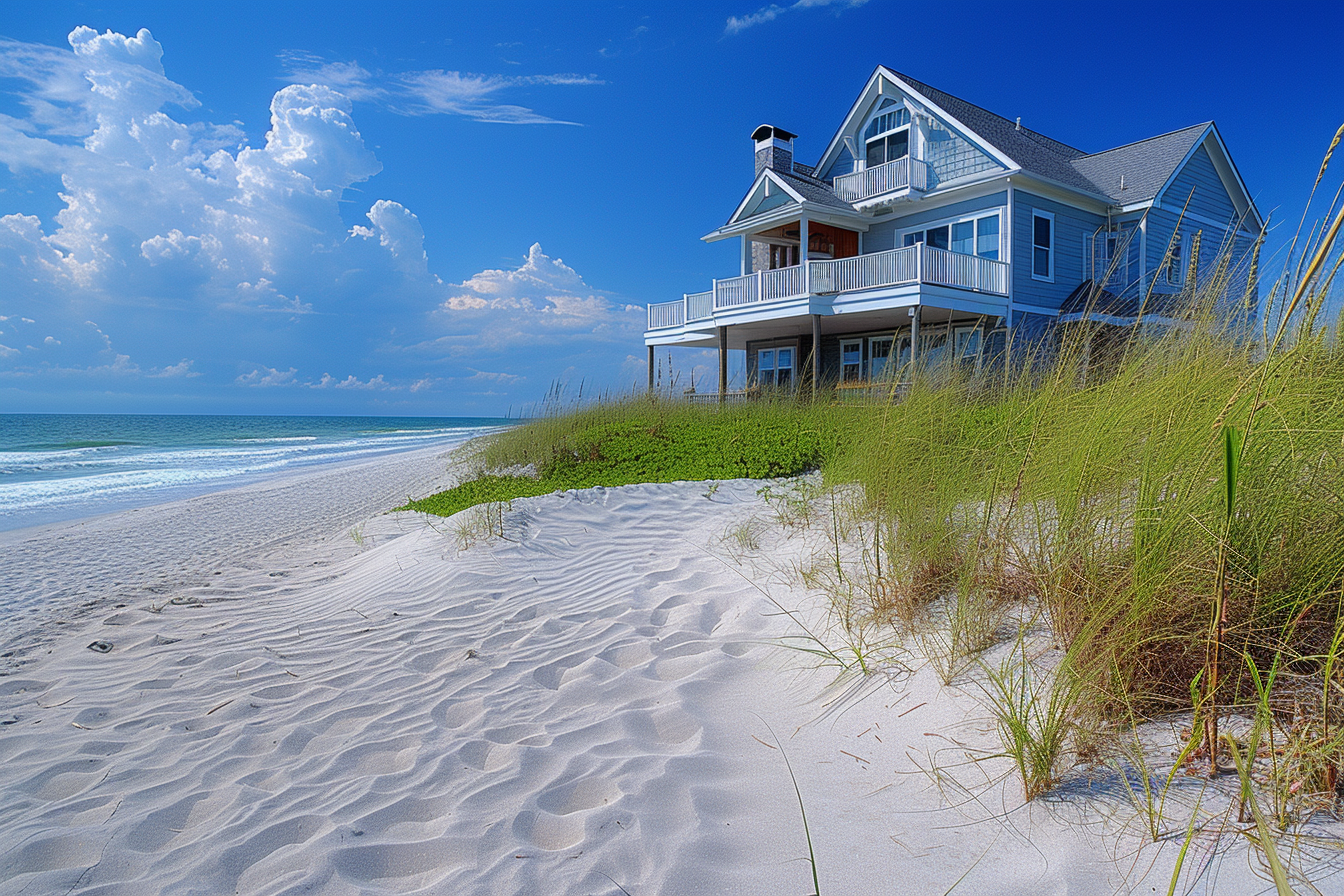Owning a beach home in North Carolina is a dream for many, conjuring images of serene ocean views and leisurely walks along the sand. However, it’s not just the idyllic scenery and the soothing sound of waves that prospective buyers should consider. There are several factors, both favorable and challenging, that come into play when owning a coastal property. In this article, we will explore the various pros and cons of owning a beach home, offering insights that are especially relevant for areas like Wilmington, North Carolina, and its surrounding counties.
Pros of Owning a Beach Home
- Scenic Beauty and Relaxation: The most obvious advantage of owning a beach home is the natural beauty and tranquility it offers. Waking up to the sound of the ocean and having direct access to the beach is a luxury that promotes relaxation and mental well-being.
- High Rental Income Potential: Beach homes, especially in popular areas like New Hanover County and Brunswick County, can generate substantial rental income. This is particularly true during peak vacation seasons when demand for beachfront properties surges.
- Strong Long-Term Investment: Real estate in coastal areas often appreciates over time. Despite market fluctuations, beachfront properties typically retain their value, making them a solid long-term investment.
- Lifestyle and Recreational Opportunities: Living near the beach offers various recreational activities like swimming, boating, fishing, and surfing. It fosters an active and social lifestyle, with opportunities to engage in community events and water sports.
- Tax Benefits: Depending on the location and usage of your beach home, there may be tax deductions available on mortgage interest, property taxes, and rental income expenses.
Cons of Owning a Beach Home
- High Initial Cost and Maintenance Expenses: Beach homes often come with a higher price tag. Additionally, they require more maintenance due to exposure to saltwater and humidity. Regular upkeep is essential to prevent issues like mold, corrosion, and weather damage.
- Insurance Costs and Complexities: Insuring a beach home can be costly and complex. These properties are more susceptible to natural disasters like hurricanes, floods, and erosion, leading to higher insurance premiums.
- Environmental Concerns: Coastal areas are vulnerable to climate change impacts such as rising sea levels and increased frequency of severe weather events. This can lead to erosion and other environmental challenges that can affect your property and its value.
- Seasonal Limitations: While beach homes are highly sought after during summer months, they may remain vacant during off-peak seasons. This can lead to inconsistent rental income for those relying on it as a source of revenue.
- Privacy Issues: Beach homes, especially in popular tourist destinations, can lack privacy. Crowds, noise, and public access to beaches can be a downside for those seeking solitude.
Detailed Analysis
Investment and Rental Potential
Investing in a beach home in areas like Pender County and Onslow County can be lucrative, especially given the growing tourism and the attractiveness of North Carolina’s coastline. The rental market for beach homes is robust, with a steady stream of vacationers looking for a beach getaway. By renting out the property, owners can cover a significant portion of their mortgage and maintenance costs. However, it’s important to consider the seasonal nature of this income and the competition in the rental market.
Maintenance and Upkeep
The idyllic location of a beach home comes with a price – higher maintenance. The salt air, sand, and humidity can take a toll on properties, requiring more frequent repairs and upkeep. Owners should be prepared for additional expenses in maintaining the exterior, including regular painting and rust prevention, and in dealing with interior challenges like dampness and mold.
Insurance and Safety
One of the biggest concerns for beach home owners is insurance. Due to the increased risk of natural disasters, insurance premiums are significantly higher for beachfront properties. It’s vital to have comprehensive coverage, including flood insurance, which can be a substantial additional expense. Moreover, the physical safety of the property during storms or hurricanes is a serious consideration, requiring potential evacuation plans and additional protective measures.
Environmental and Climate Considerations
The impact of climate change on coastal properties is an increasing concern. Rising sea levels and more frequent severe weather events pose a risk to beach homes, potentially leading to erosion and property damage. Prospective buyers should research the history of the area and consider environmental resilience measures.
Conclusion
Owning a beach home in North Carolina can be incredibly rewarding, offering a unique lifestyle and potentially lucrative investment opportunity. However, it’s not without its challenges. By understanding both the pros and cons and doing thorough research, you can make an informed decision that aligns with your personal and financial goals.
For those based in areas like New Hanover County, Brunswick County, Pender County, or Onslow County, the dream of owning a beach home is very much within reach. With careful planning and consideration, you can find a property that offers the best of coastal living while managing the inherent risks and responsibilities.






